Special Report
Companies With the Best and Worst Reputations
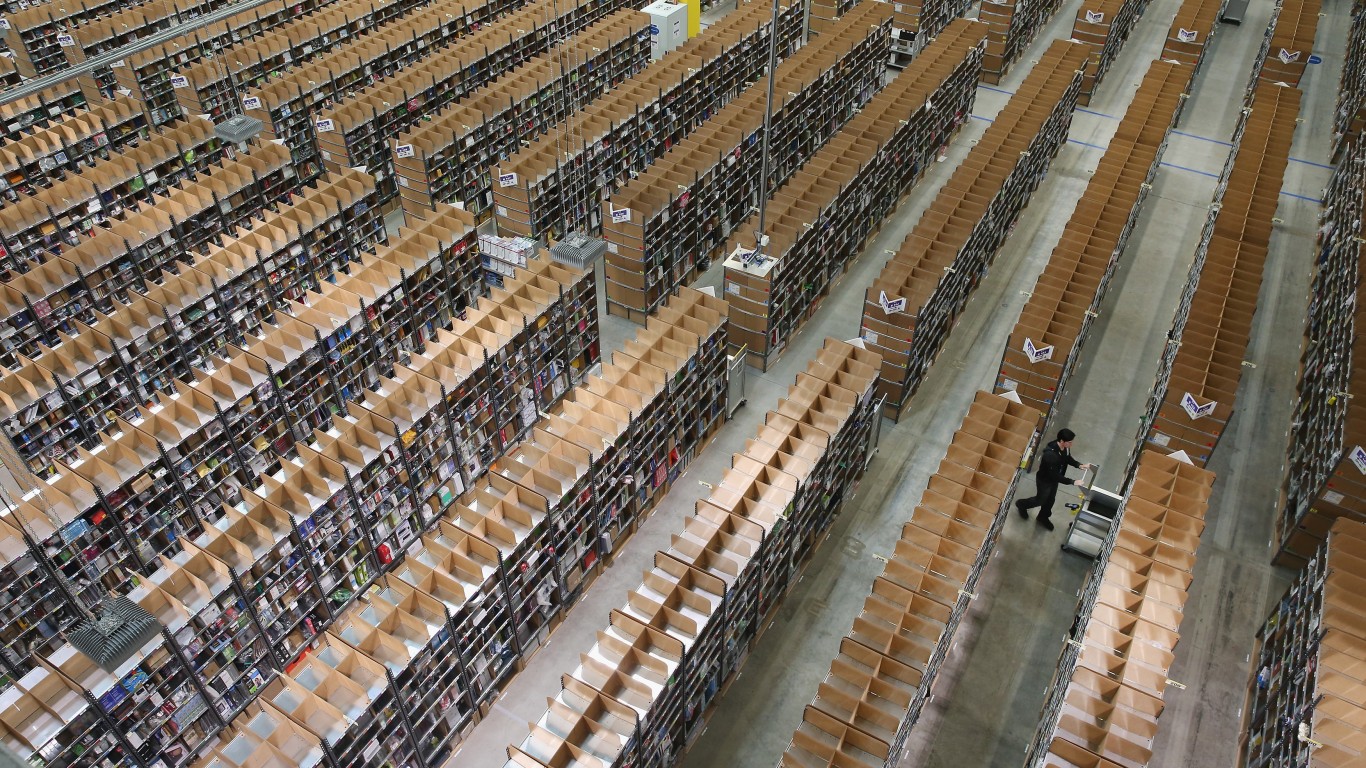
Published:
Last Updated:

In a free market economy, competing companies must not only try to offer superior products or services, but also cultivate a positive public image. Generally, businesses with good reputations are better-positioned to bring in investors, attract top talent, and maintain a loyal customer base. During the tumultuous months of 2020, many companies have had a unique opportunity to distinguish themselves — for better or worse.
In addition to offering innovative and sought-after products and services, the companies with the best reputations are also generally those that have strong growth prospects and a vision for the future. These companies are generally trusted and seen as good places to work. Corporate values and strong ethics also influence public perception. And some companies appear to understand this better than others.
For the 21st consecutive year, the Axios Harris Poll surveyed thousands of Americans on their perceptions of the 100 most visible companies in the United States. 24/7 Wall St. reviewed the results of the Harris Poll to determine the companies with the best and worst reputations.
Many of the companies that rank among the most reputable are those that have played a vital role during the coronavirus pandemic. Among them are four brick-and-mortar retailers and an e-commerce giant that reliably provided for their customers during a time of deep uncertainty. Also among them are companies that manufacture products that have proved essential during the pandemic. Many of these companies have also donated money, time, and products to fight COVID-19 and reduce its impact. Here is a look at some of the companies that have helped Americans fight COVID-19.
In contrast to the companies with the best reputations, many of those with the worst reputations have been mired in scandal in recent years. They tend to not have the public’s trust, and they notably have not generally been seen as essential service providers during the pandemic. In fact, reduced business caused by COVID-19 may ultimately lead to the demise of at least one company among those with the worst reputations. Here is a list of American businesses that might not survive the coronavirus.
Click here to see companies with the best and worst reputations.
Click here to read our methodology.
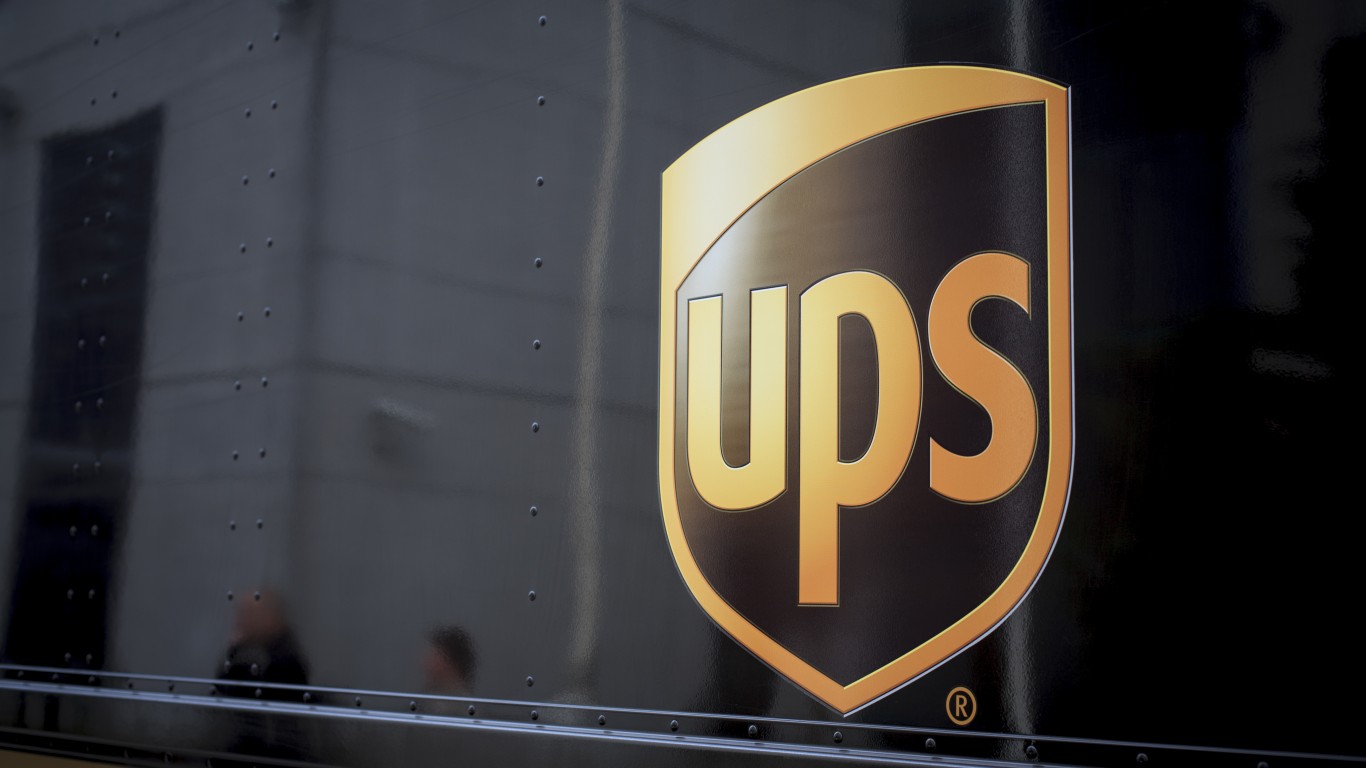
10. UPS
> 2020 reputation quotient: 79.4
> 2019 reputation quotient: 79.3
> Industry: Shipping
> CEO: Carol Tomé
Of America’s most recognizable companies, UPS has the 10th best reputation, according to the 2020 Harris Poll of over 34,000 Americans. As people were increasingly isolated in their homes amid the COVID-19 pandemic, delivery services like UPS provided them with a way to get the products they needed while remaining socially distanced. Survey respondents felt especially positively about UPS’ ethical standards and company values.
[in-text-ad]
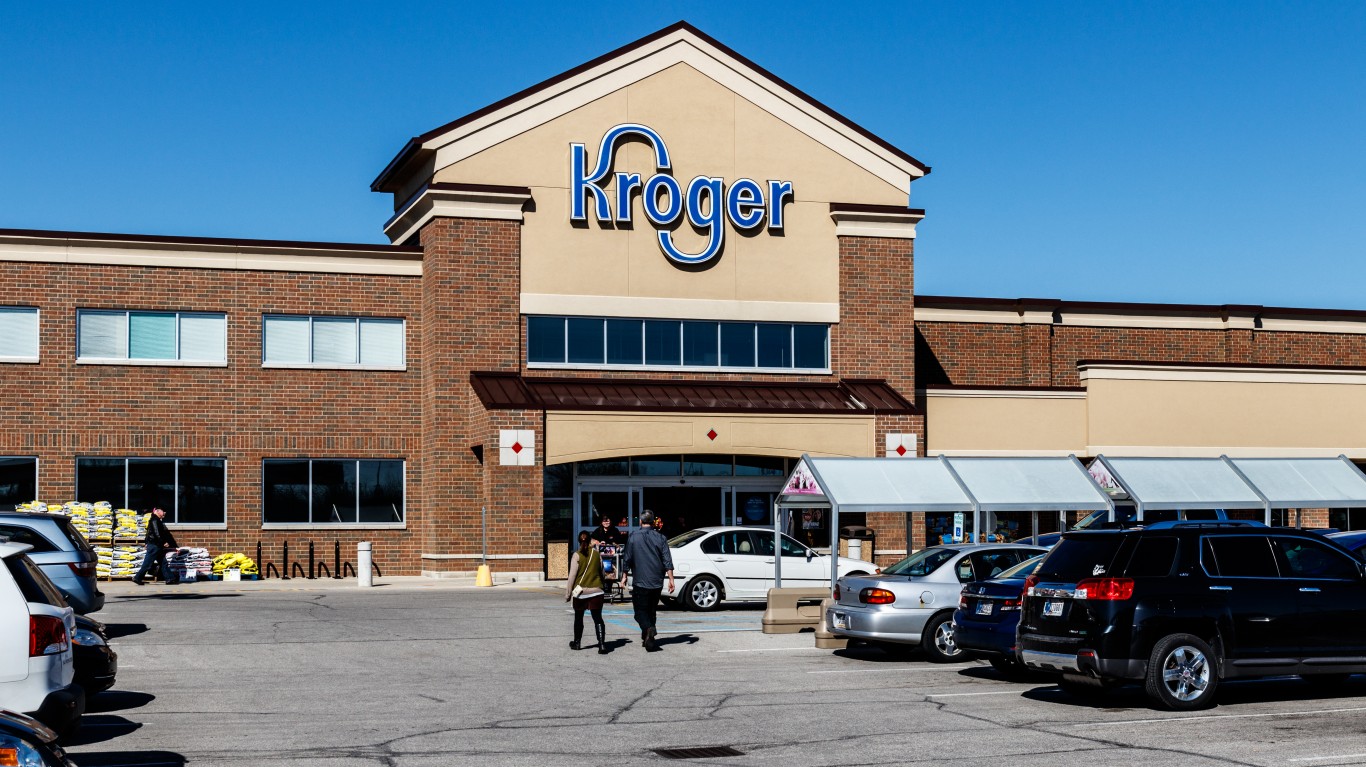
9. The Kroger Company
> 2020 reputation quotient: 79.4
> 2019 reputation quotient: 77.9
> Industry: Grocery stores
> CEO: W. Rodney McMullen
Grocery store chain Kroger ranks as the company with the ninth-best reputation in 2020, up a dozen places from the year before. Companies that have provided Americans with basic necessities during the earlier months of the pandemic in the U.S. tended to perform well on this survey. Kroger provided its workers with hazard pay through June, though grocery store union representatives are working to restore those benefits.
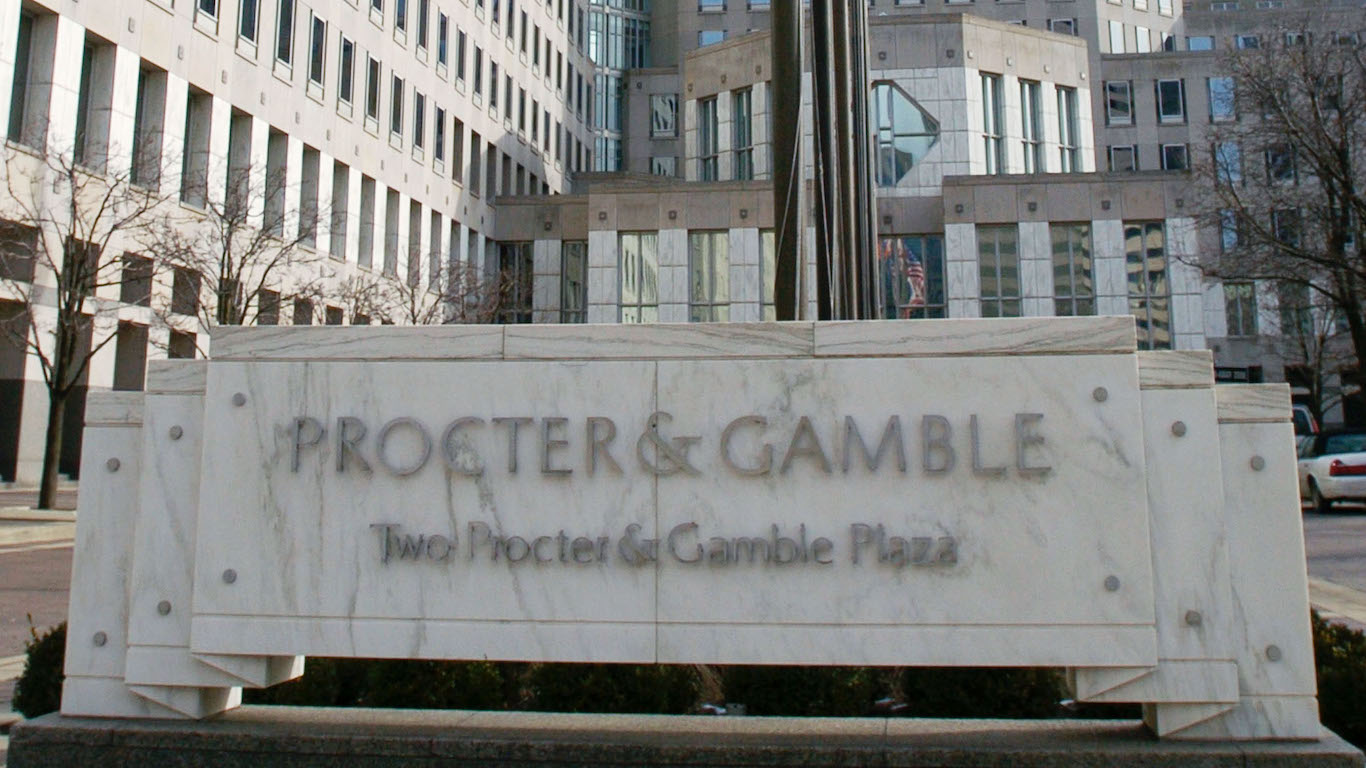
8. Procter & Gamble Co.
> 2020 reputation quotient: 79.9
> 2019 reputation quotient: 79.8
> Industry: Household products
> CEO: David S. Taylor
Cincinnati-based Procter & Gamble owns many of the most recognizable household product brands in the U.S., including Charmin, Bounty, and Mr. Clean. Americans purchased products from these and other Procter & Gamble-owned brands to keep their homes clean. The toilet paper and disinfecting products the company made were especially coveted commodities in the early days of the pandemic. Amid the COVID-19 pandemic, P&G donated more than $15 million-worth of products, money, and protective equipment to help fight the virus.
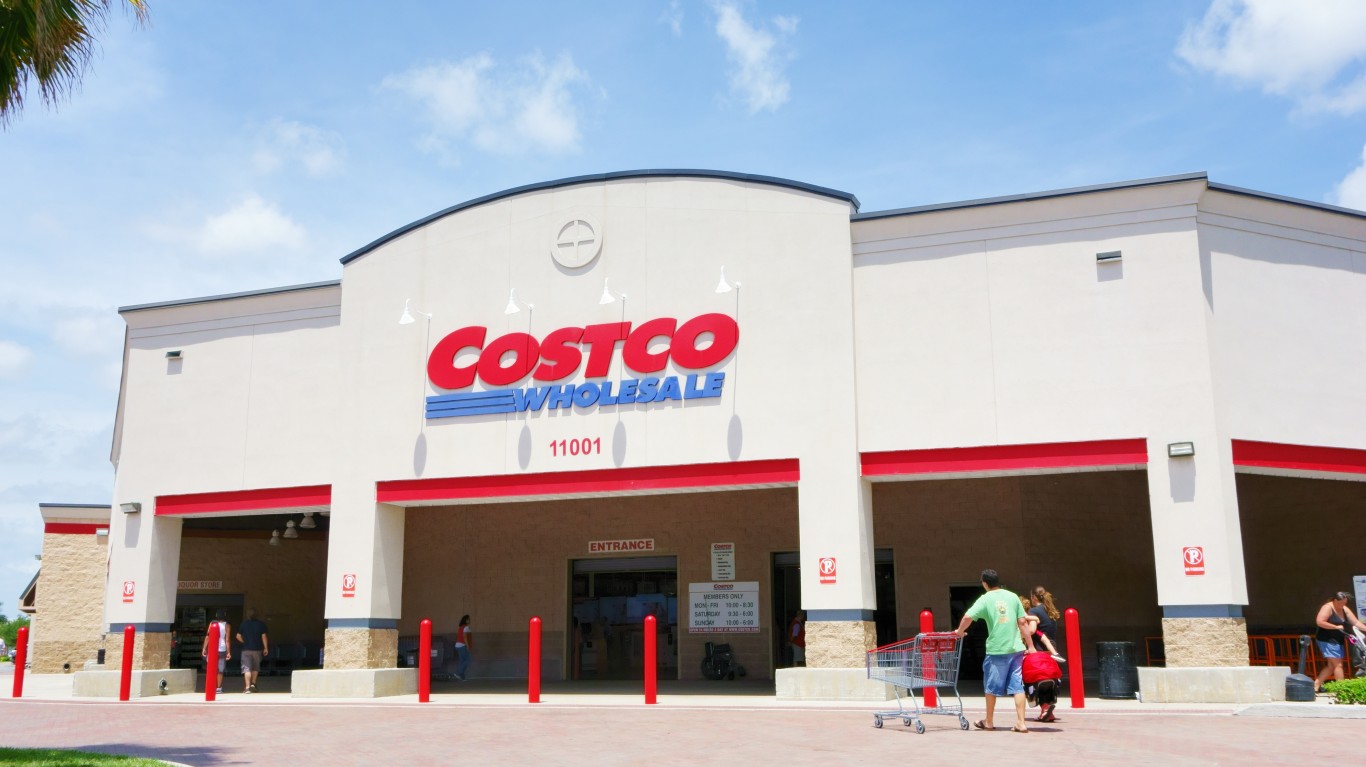
7. Costco
> 2020 reputation quotient: 80.3
> 2019 reputation quotient: 78.6
> Industry: Discount retail
> CEO: W. Craig Jelinek
Costco is a membership only discount retailer. Unlike some other retailers on this list that are regional, Costo has locations in eight countries. During the COVID-19 pandemic, Americans flocked to Costco to stock up on food and other essential items. The retailer also took measures to protect its customers more vulnerable to the worst effects of the virus, offering special hours for shoppers 60 and older.
[in-text-ad-2]
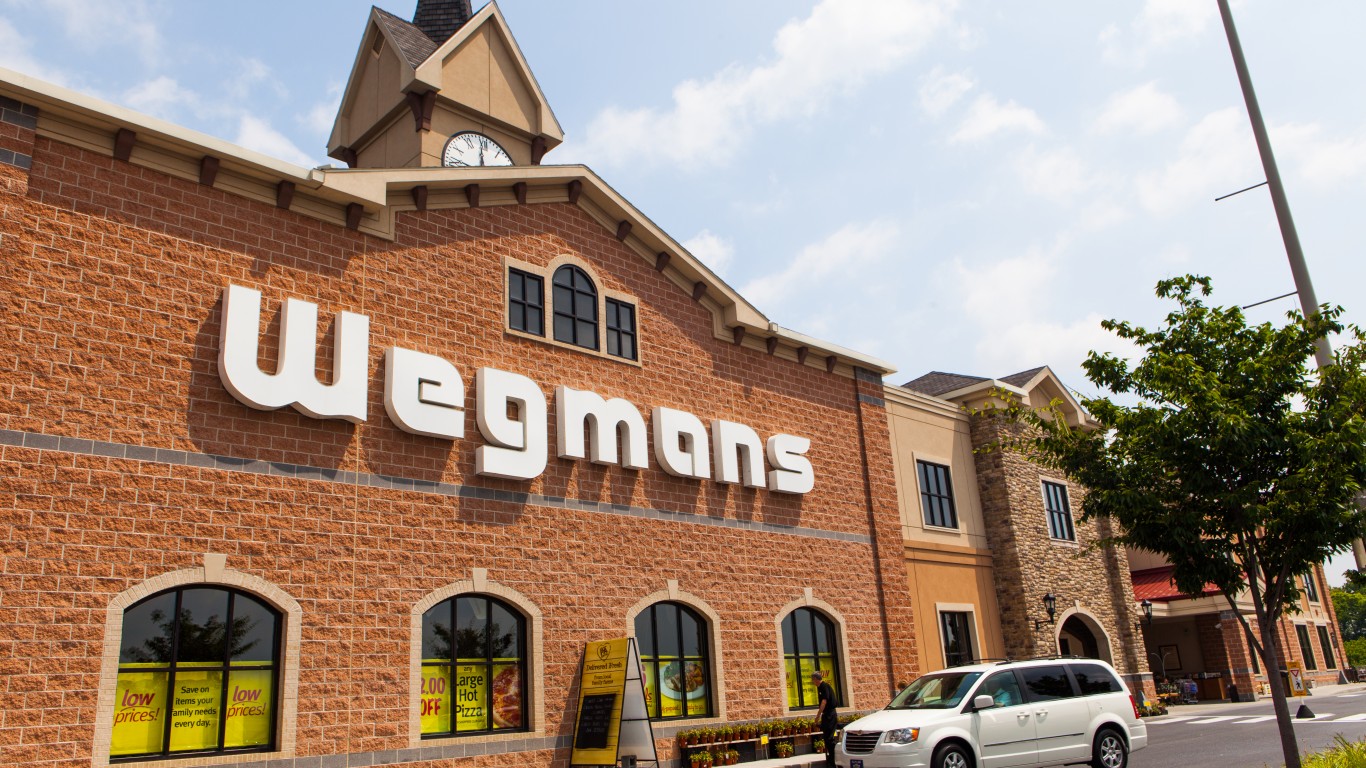
6. Wegmans
> 2020 reputation quotient: 80.4
> 2019 reputation quotient: 83.0
> Industry: Grocery stores
> CEO: Colleen Wegman
Rochester, New York-based Wegmans is one of several grocery store chains to rank on this list. Highly rated by its employees, many of whom benefit from a company scholarship program, Wegmans is widely recognized as one of the best companies to work for. It also has a loyal customer base and receives high marks for its products and level of service. Wegmans also has a strong record of charitable giving, donating 18.6 million pounds of food to local food banks in 2019 alone. Named for its founders, brothers Walter and John Wegman, the company has been family-owned since its founding in 1916 and operates over 100 stores, mostly in the Northeast and mid-Atlantic.
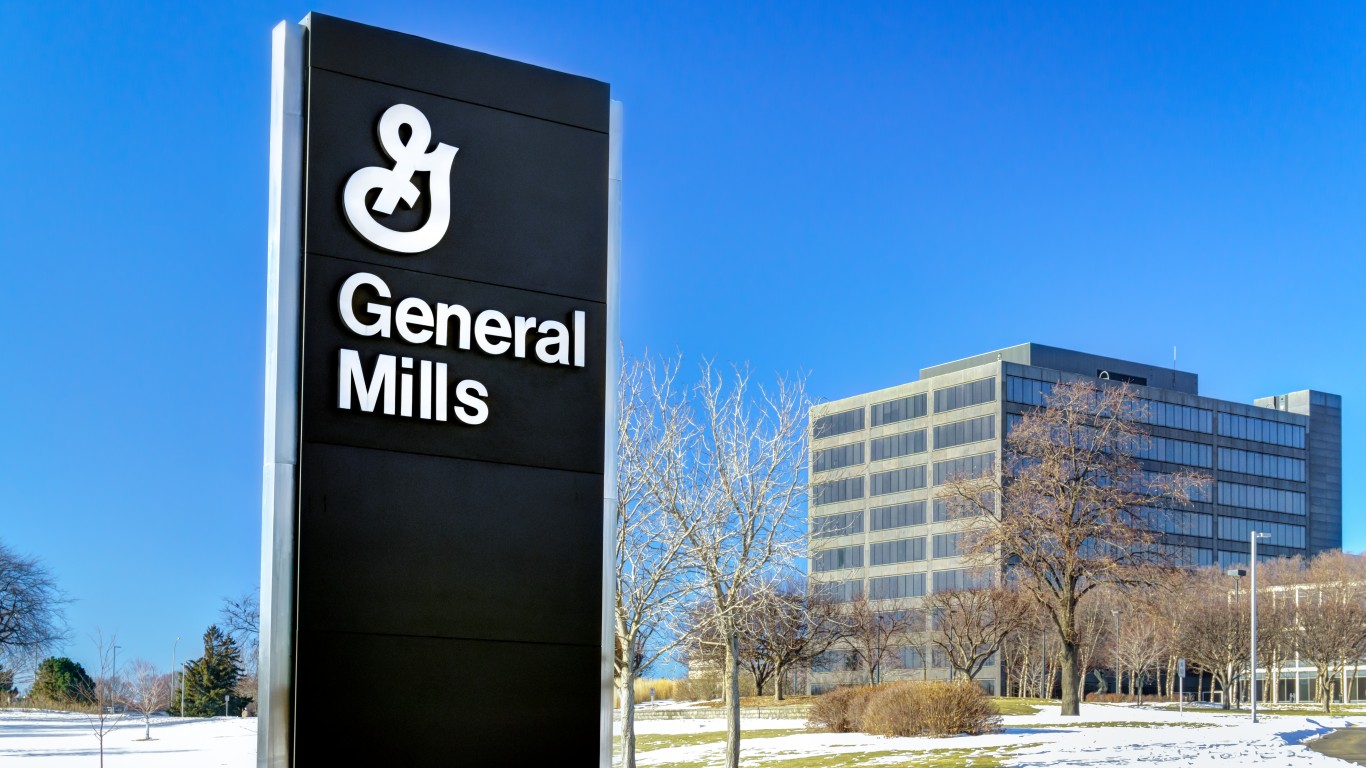
5. General Mills
> 2020 reputation quotient: 81.2
> 2019 reputation quotient: N/A
> Industry: Food
> CEO: Jeffrey L. Harmening
During the COVID-19 pandemic, packaged food company General Mills donated $5 million to ensure vulnerable children had access to meals amid school closures. The Minnesota-based consumer foods company also paid its workers a daily bonus and granted them enhanced benefits during the pandemic.
General Mills is the company behind some of the most recognizable brands stocking shelves of grocery stores across the country. The company’s products include cereal, snack foods, pizza, ice cream, and yogurt, marketed under familiar brands like Betty Crocker, Cheerios, Haagen Dazs, Nature Valley, Pillsbury, and Yoplait.
[in-text-ad]
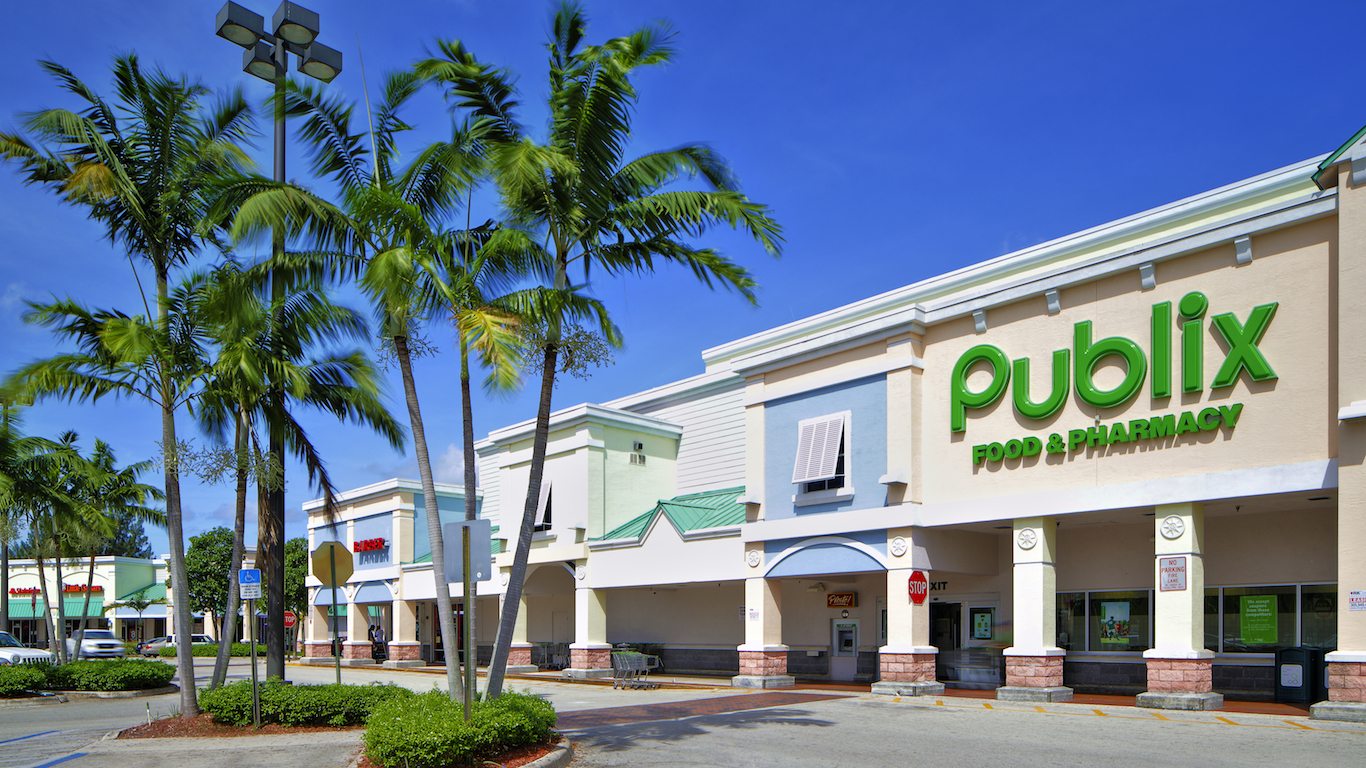
4. Publix Supermarkets
> 2020 reputation quotient: 81.2
> 2019 reputation quotient: 80.3
> Industry: Grocery stores
> CEO: Todd Jones
Florida-based Publix Supermarkets is the largest employee-owned company in the country. The company has a loyal customer base and receives high marks from its employees as a place to work. As is the case with many highly regarded companies, Publix is notable for its charitable contributions. The company was recently recognized as the top charitable donor to United Way, pledging $38.6 million to the nonprofit organization’s most recent campaign.
During the second quarter of 2020, as more Americans were eating at home amid the pandemic, Publix sales surged. Publix has over 1,200 brick-and-mortar stores locations across the Southeastern United States.
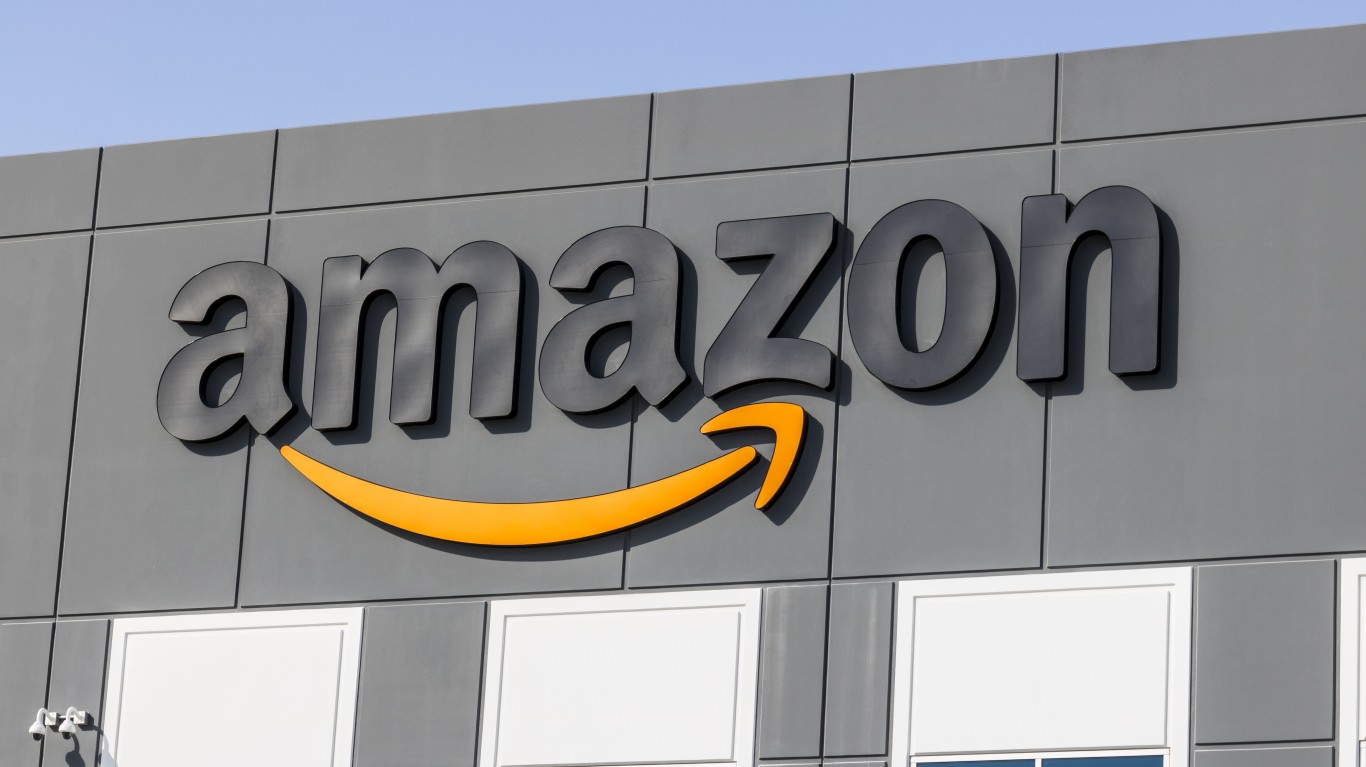
3. Amazon
> 2020 reputation quotient: 81.4
> 2019 reputation quotient: 82.3
> Industry: E-commerce
> CEO: Jeffrey P. Bezos
Few companies proved to be as indispensable as Amazon.com during the pandemic. The e-commerce giant delivered much needed products to homes and businesses all over the country at a time when shopping at brick-and-mortar retailers was dangerous or just not possible. In the first quarter of 2020 alone, Amazon reported $75.5 billion in sales, up from $59.7 billion in the same period the previous year, and traffic to the company’s website jumped 65% in March 2020 compared to the same time last year.
As is the case with many other companies on this list, Amazon has given back during the pandemic. The company set aside $500 million in bonuses for employees who worked throughout the month of June and has donated tens of millions of dollars in relief funds for employees and communities affected by the virus.
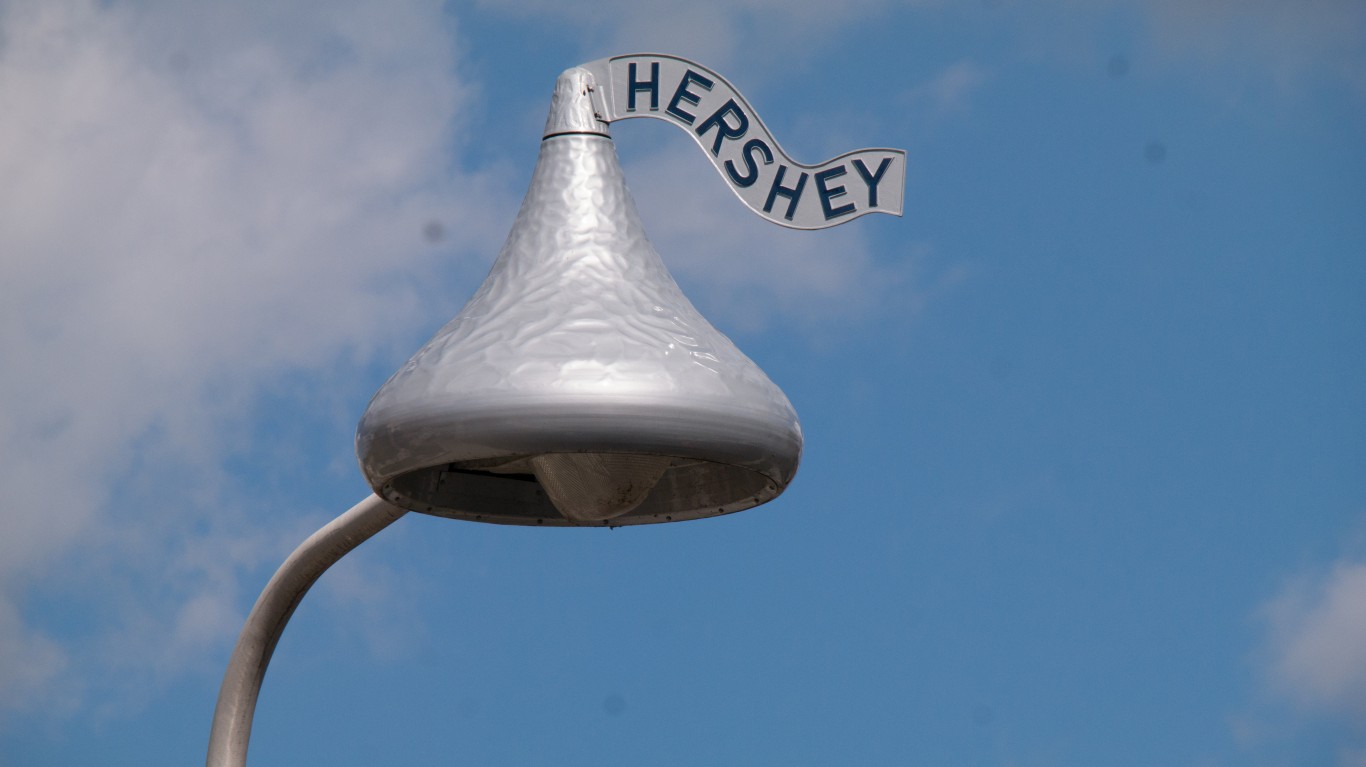
2. The Hershey Company
> 2020 reputation quotient: 81.5
> 2019 reputation quotient: N/A
> Industry: Food
> CEO: Michele Gross Buck
Like many of the companies on this list — especially those that rank among the most reputable companies in 2019 — The Hershey Company has taken measures to reduce the impact of COVID-19. In April, Hershey committed $1 million to produce face masks for its employees, their families, health care workers, and others. The company has also donated tens of thousands of dollars, as well as dairy products and sugar, to the Central Pennsylvania Food Bank.
[in-text-ad-2]
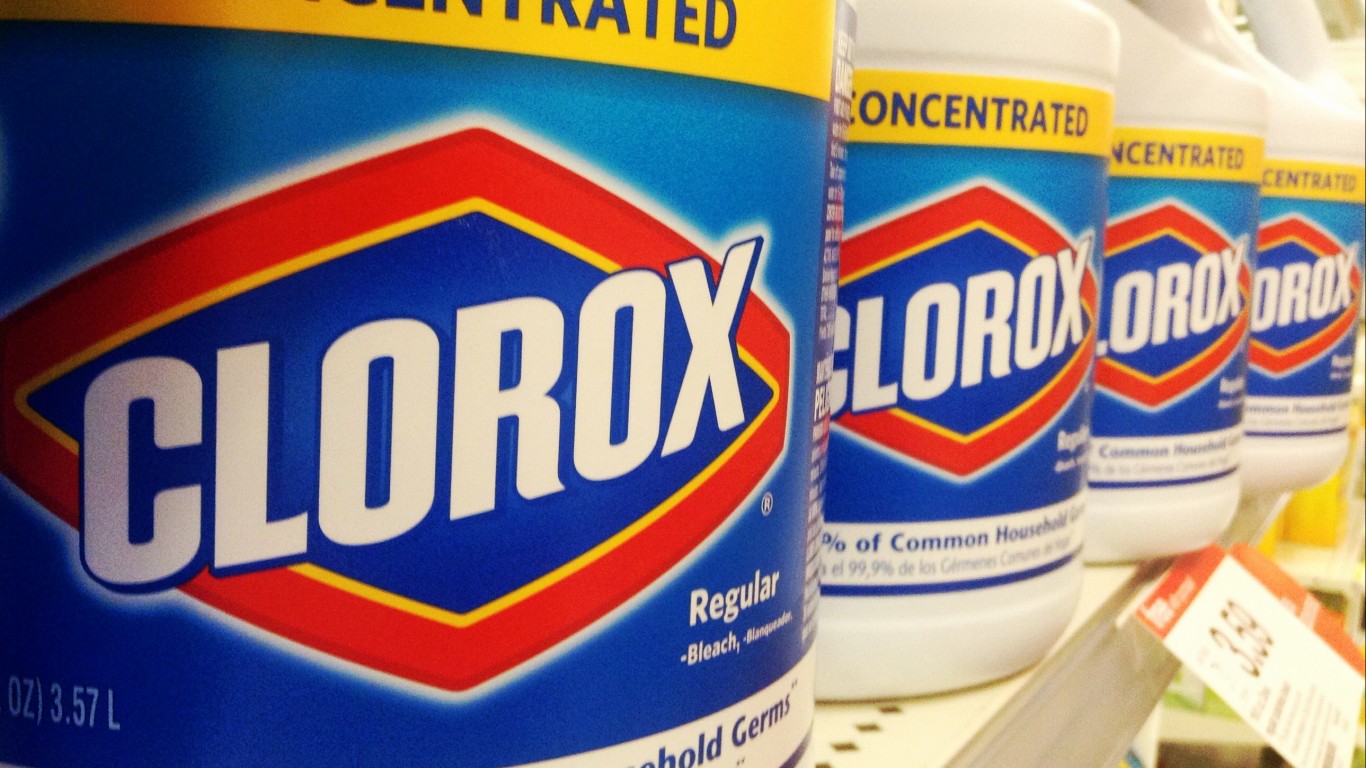
1. The Clorox Company
> 2020 reputation quotient: 82.8
> 2019 reputation quotient: N/A
> Industry: Household products
> CEO: Benno O. Dorer
During the COVID-19 pandemic, Clorox has risen in stature and reputation with the American public. The company manufactures a range of cleaning products including bleach, laundry detergent, mopping cloths, disinfectant cleaning products, and disinfecting wipes that claim to kill 99% of viruses and are approved against the novel coronavirus. During the pandemic, products like these have proved to be essential in keeping households and public spaces clean to help slow the spread of the virus.
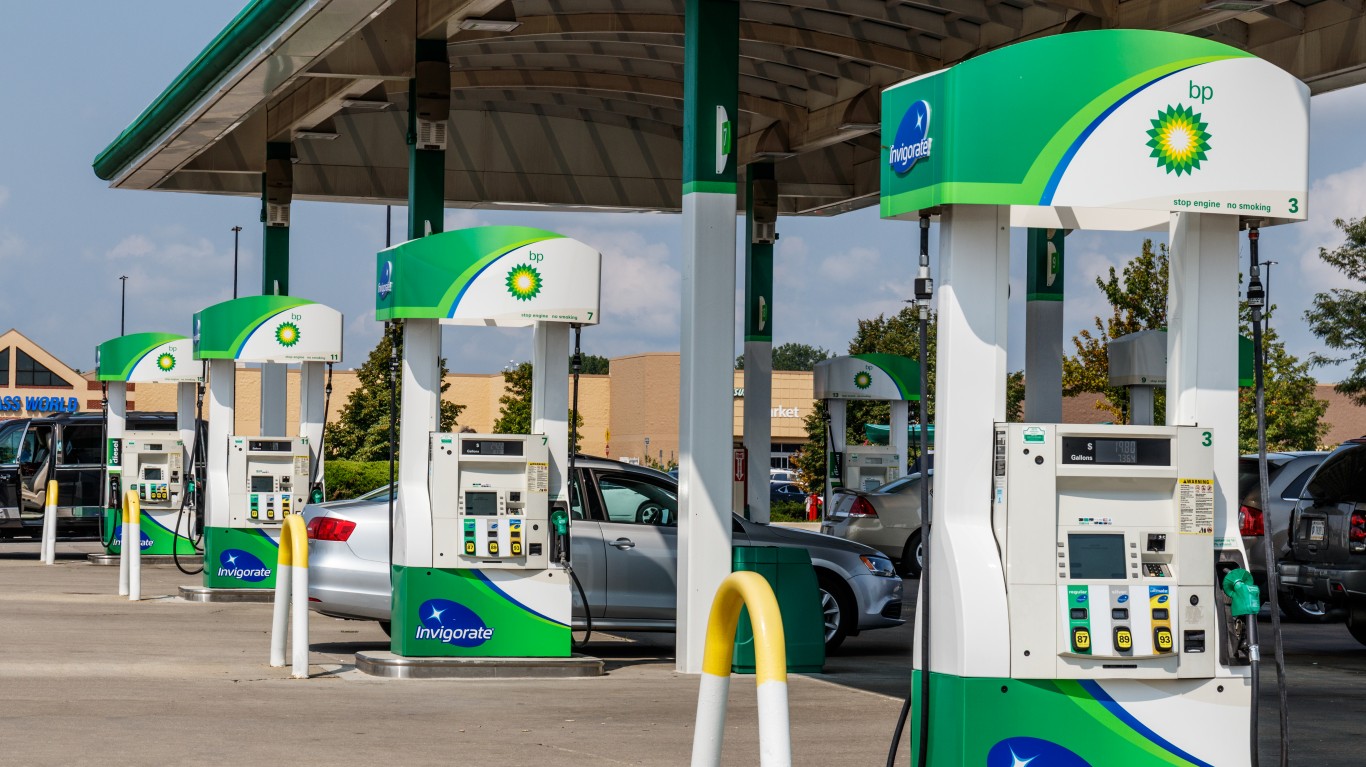
10. BP
> 2020 reputation quotient: 65.6
> 2019 reputation quotient: 66.5
> Industry: Oil and gas
> CEO: Bernard Looney
London-based BP, formerly known as British Petroleum, is one of the companies behind the Deepwater Horizon oil rig explosion in the Gulf of Mexico, that killed 11 people and leaked 4 million barrels of oil into the ocean over an 87-day period. In addition to being culpable for the largest oil spill in marine drilling history, BP has committed over 100 environmental violations in the last 20 years, for which it has paid nearly $30 billion in penalties. Perhaps not surprisingly, Americans have concerns about the company’s ethics, vision, and values and are unlikely to trust BP.
[in-text-ad]
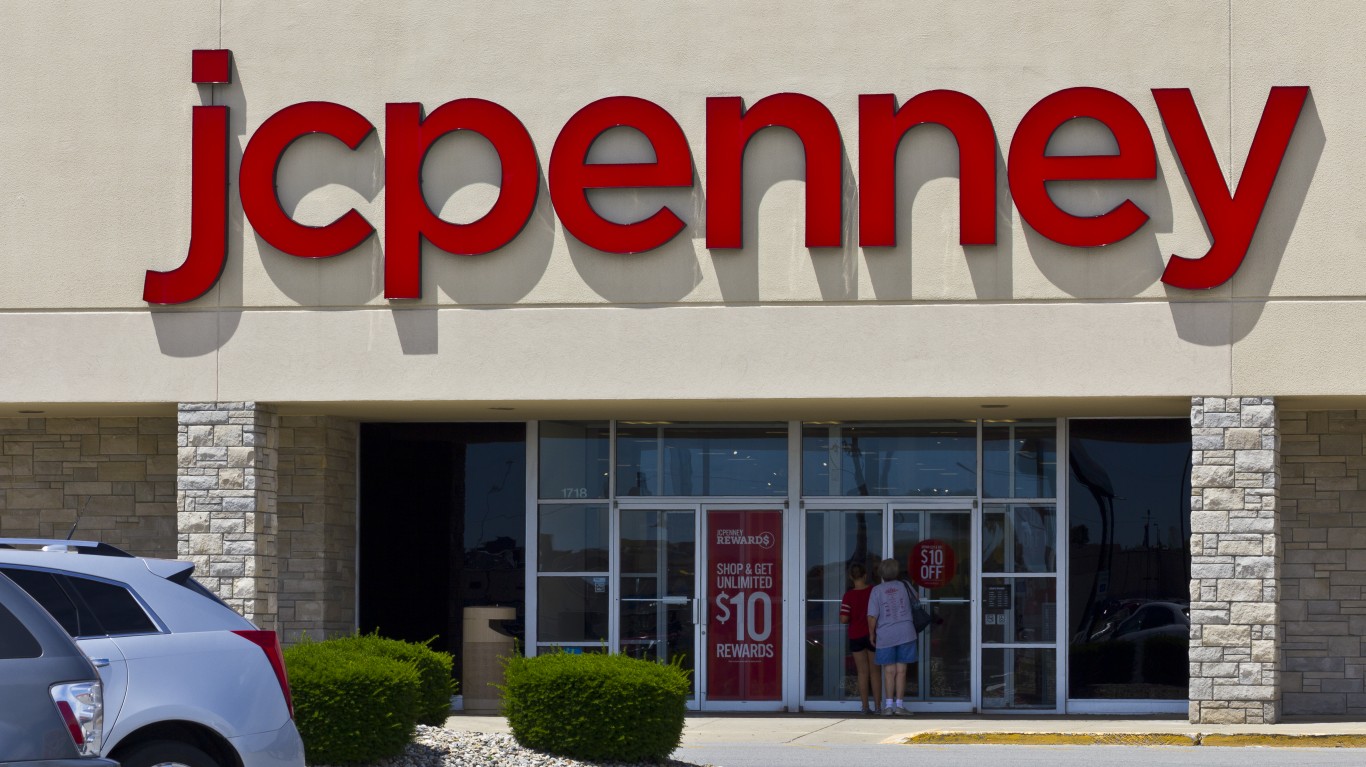
9. JCPenney
> 2020 reputation quotient: 63.5
> 2019 reputation quotient: 66.6
> Industry: Department store
> CEO: Jill Soltau
The once great department store chain JCPenney is now one of the latest victims of what many are calling the retail apocalypse. Already struggling under growing debt and lagging sales going into 2020, the COVID-19 pandemic led the company to file for bankruptcy protection in May. To avoid liquidation, JCPenney will likely have to close hundreds of locations.
The company’s poor reputation is tied to widespread doubts about its viability as well as its vision for the future. In light of the mass store closures that are likely coming, it is perhaps not surprising that JCPenney did not rank as a good company to work for in the poll.

8. Comcast
> 2020 reputation quotient: 63.3
> 2019 reputation quotient: 61.4
> Industry: Entertainment and telecommunications
> CEO: Brian Roberts
Comcast is a media and telecommunication conglomerate that operates multiple brands, including Xfinity, NBC, and Universal theme parks. Comcast’s reputation suffers from a lack of public trust and a dislike for its products and services.
Cable service providers, like the Comcast brand Xfinity, are perennially unpopular with the American public, often due to perception of poor customer service, regular price hikes, and long-term contracts. Some Americans may also be skeptical about the company’s growth potential, as cable providers are struggling in an era of a growing number of streaming services. In the second quarter of 2020 alone, the company reported it lost a net of nearly half a million cable television subscribers.
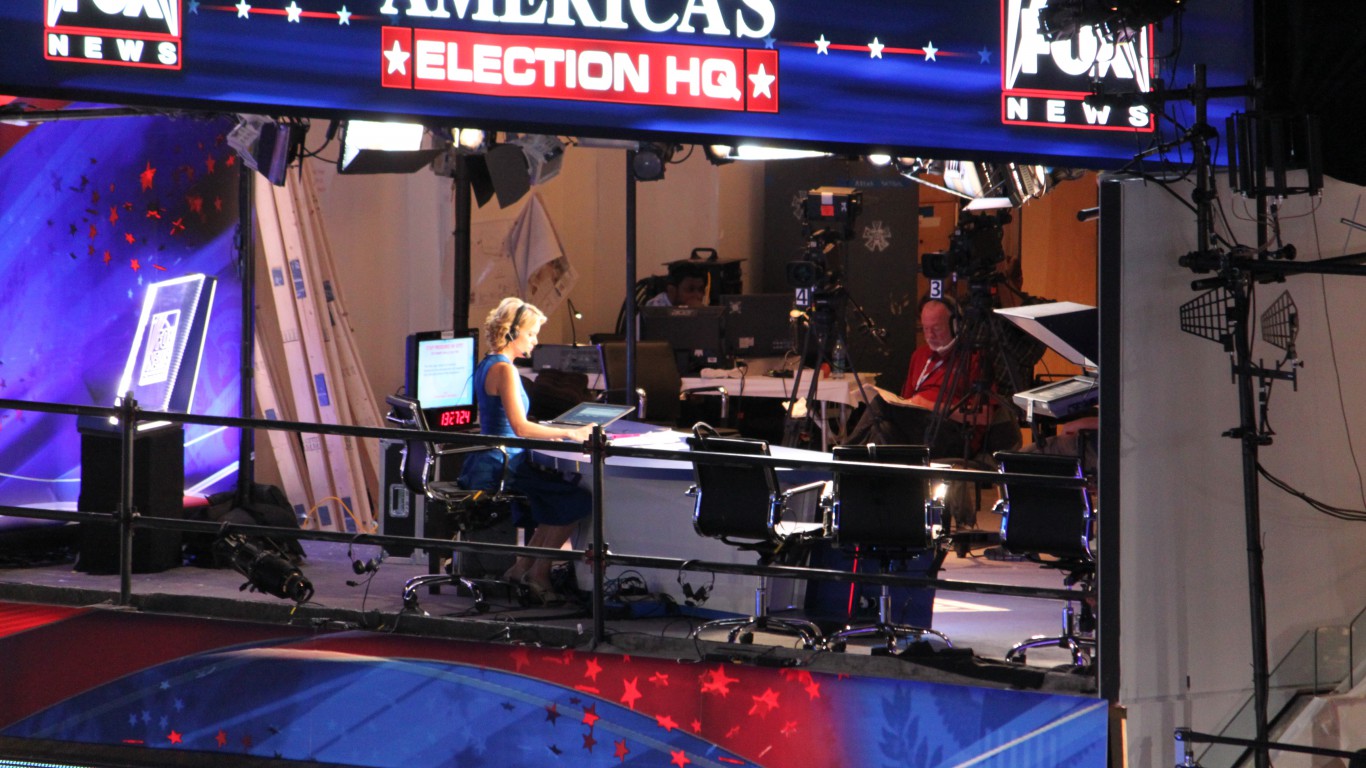
7. Fox Corporation
> 2020 reputation quotient: 63.1
> 2019 reputation quotient: N/A
> Industry: Broadcasting
> CEO: Lachlan Keith Murdoch
Fox Corporation is a New York-based cable television company that operates a number of sports, news, and entertainment networks. A widespread perception that the company is not a good place to work partially explains the company’s poor reputation. Former Fox News CEO Roger Ailes resigned from the company in 2016 amid allegations of sexual misconduct, and the following year, Bill O’Reilly, the network’s most watched broadcaster resigned over similar allegations.
The company is also widely criticized for appearing to have a political agenda, and these perceptions may undermine public trust in the organization.
[in-text-ad-2]
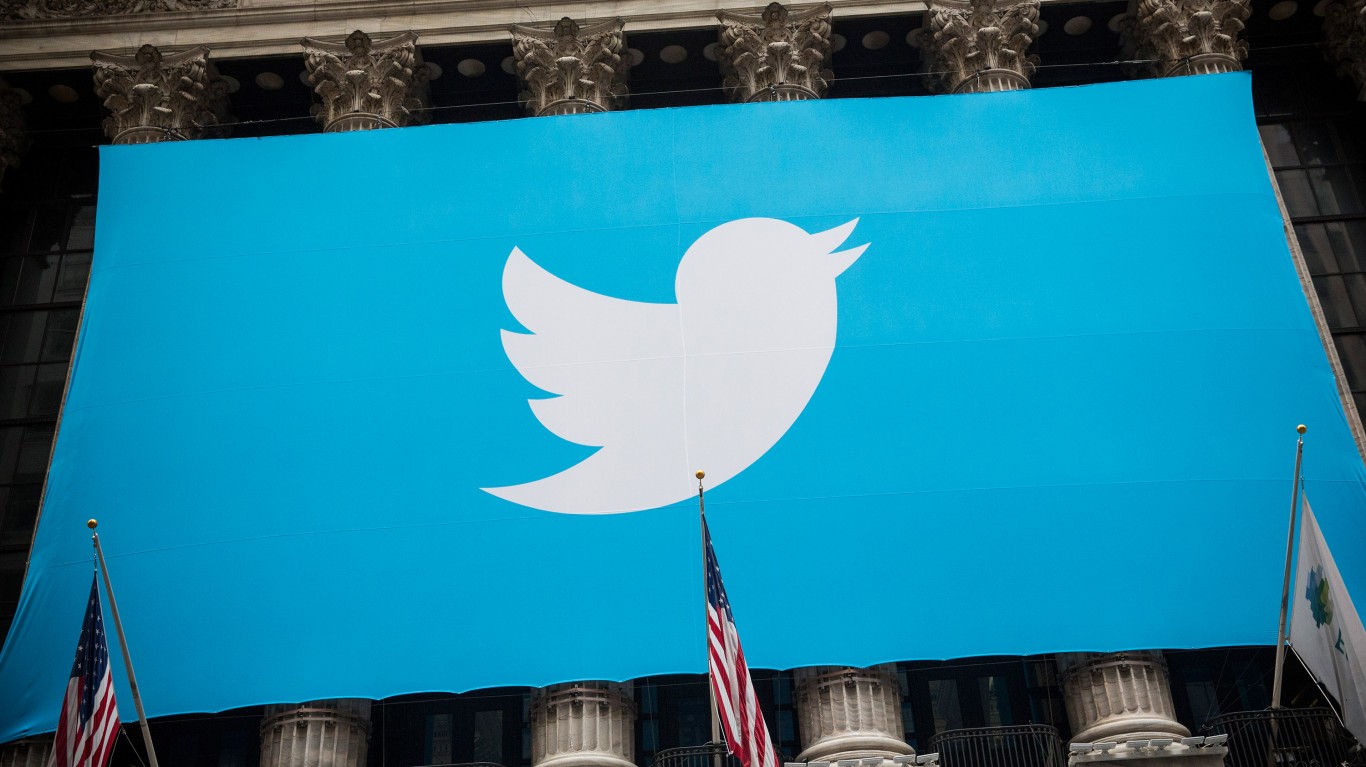
6. Twitter
> 2020 reputation quotient: 62.1
> 2019 reputation quotient: 61.9
> Industry: Social media
> CEO: Jack Dorsey
Twitter has been criticized for being both too harsh and too lenient with controversial tweets and accounts. President Trump accused the social media site of stifling free speech when it fact checked a tweet of his from May 2020 that made the unsubstantiated claim that the governor of California would mail ballots to “anyone living in the state” and then have “professionals” tell them how to vote.
Other critics have also accused Twitter of allowing users that post hateful or harassing messages to remain on the site, in spite of alleged violations of its policies. Survey respondents ranked Twitter’s ethics and culture among the worst of America’s most recognizable companies.
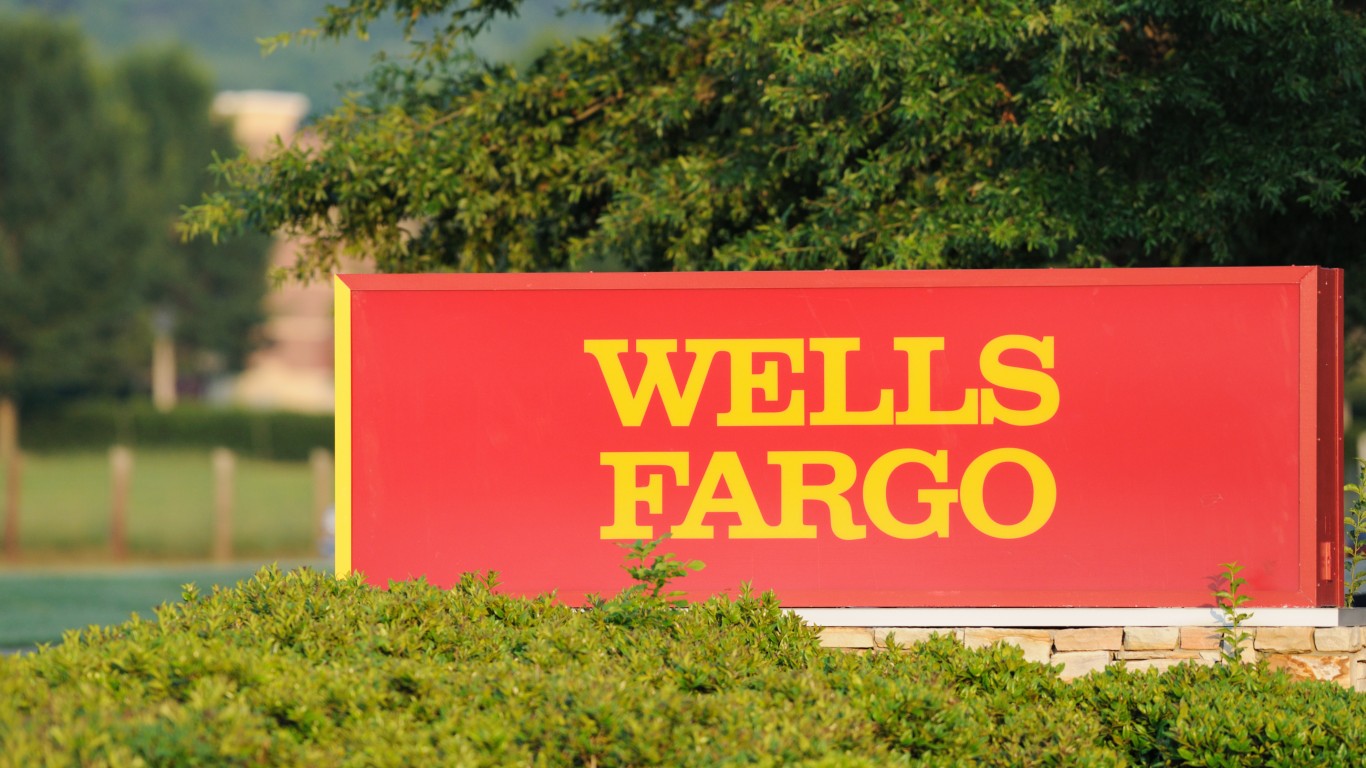
5. Wells Fargo & Company
> 2020 reputation quotient: 61.2
> 2019 reputation quotient: 52.7
> Industry: Banking
> CEO: Charles W. Scharf
Though Wells Fargo’s reputation improved from 2019 to 2020, the bank still has one of the five worst reputations among America’s most recognizable companies. Wells Fargo’s reputation took a severe hit in 2016, when it was revealed the bank pressured workers to create fake accounts to inflate sales. In 2020, five former executives were charged for their role in the scandal. The Office of the Comptroller of the Currency — part of the U.S. Treasury — is seeking millions of dollars in penalties and lifetime bans from the banking industry for these executives.
[in-text-ad]
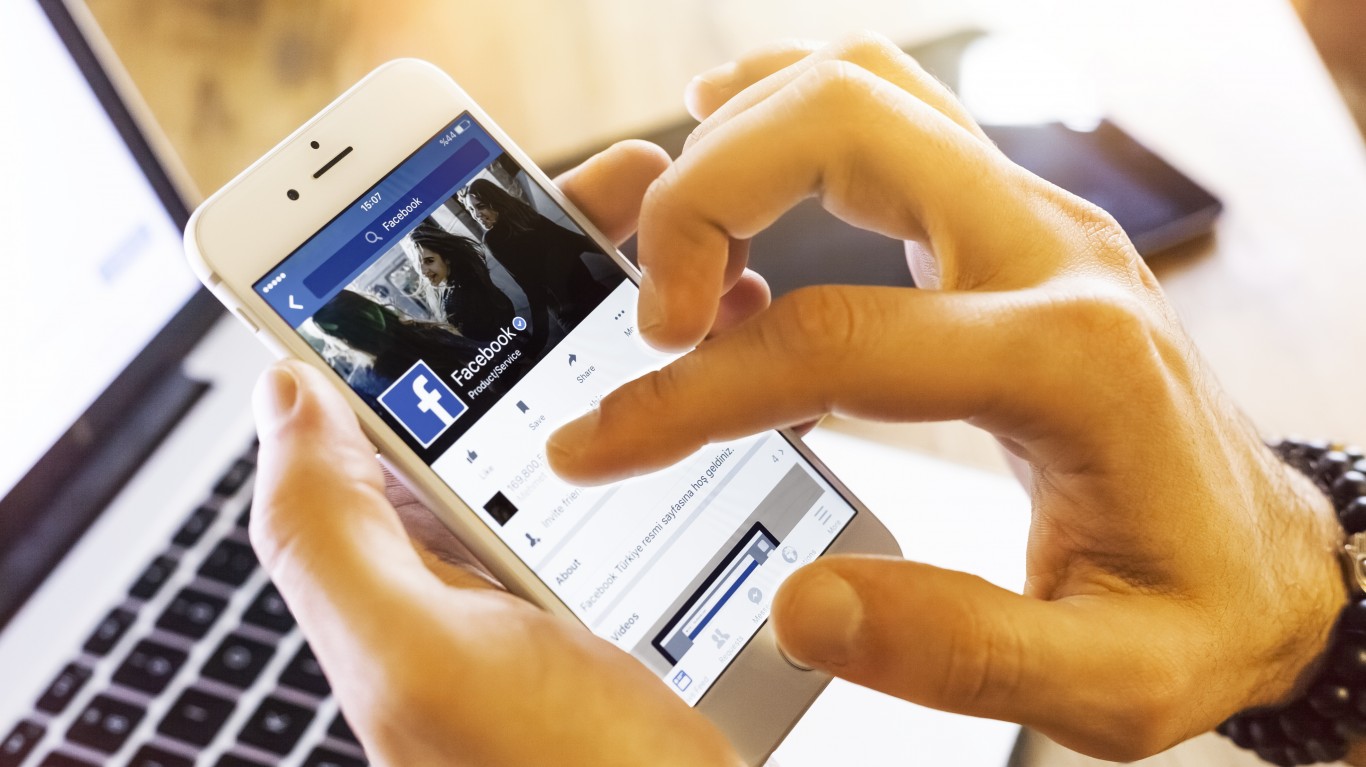
4. Facebook
> 2020 reputation quotient: 60.8
> 2019 reputation quotient: 58.1
> Industry: Social media
> CEO: Mark Zuckerberg
Facebook’s reputation has been seriously damaged in the past four years due to its role in election interference. Ahead of the 2016 U.S. presidential elections, the social media site was used by several domestic and foreign entities to spread misinformation, contributing to political polarization in the U.S. and abroad. In addition, consultant group Cambridge Analytica was able to harvest personal data from as many as 87 million Facebook users without their knowledge or consent to tailor ads to target their political leanings.

3. Monsanto
> 2020 reputation quotient: 55.2
> 2019 reputation quotient: N/A
> Industry: Agriculture
> CEO: Werner Baumann (Bayer)
Agrochemical company Monsanto was acquired by German pharmaceutical giant Bayer in 2018. Though it no longer exists as an independent company, Monsanto still ranks among the most visible and least reputable companies among American consumers. The company has drawn criticism for a range of reasons, including its production of Agent Orange and its role in developing controversial genetically modified organisms, or GMOs.
Recently, the company has been in the spotlight again for its popular weed killing product, Roundup. Though the company maintained that the product is safe, Roundup has prompted an onslaught of lawsuits over allegations that it causes cancer. Because Bayer bought Monsanto, it is on the hook for settling tens of thousands of lawsuits to the tune of over $10 billion, one of the largest civil suit settlements in U.S. history.
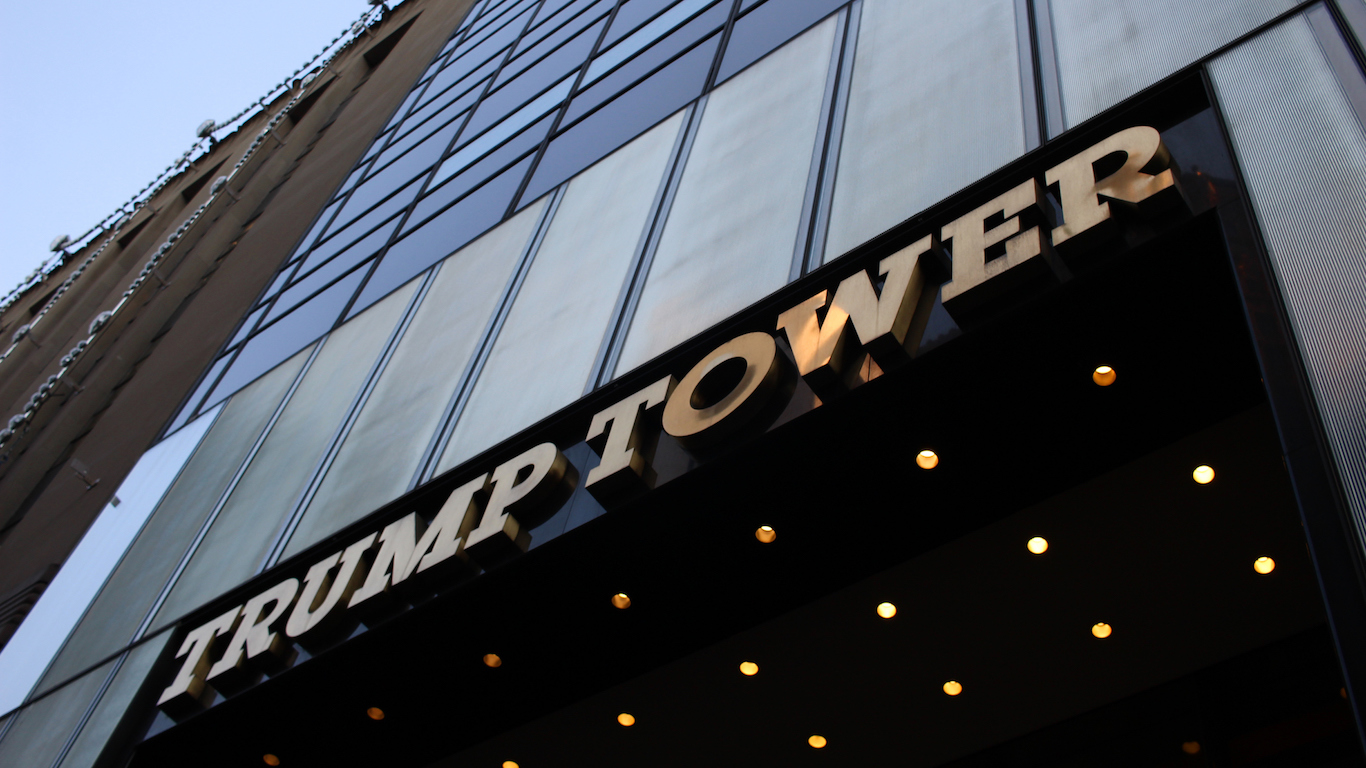
2. The Trump Organization
> 2020 reputation quotient: 54.5
> 2019 reputation quotient: 50.1
> Industry: Real estate
> CEO: N/A
The Trump Organization is the real estate empire that was run by Donald Trump before he became president. According to FiveThirtyEight’s approval rating tracker, 54.7% of American voters do not approve of the president, and consequently the business that bears his name is disliked by many as well.
The Trump Organization has been at the center of several controversies since Trump was elected president. The president is currently facing legal action from the attorneys general of Washington D.C. and Maryland, who accuse the president of violating the constitution’s Emolument Clause when the Saudi Arabian government used a veterans group to funnel hundreds of thousands of dollars into the company. Manhattan’s district attorney also said the Trump Organization faces “allegations of possible criminal activity,” including alleged hush money payments made to women who claimed they had affairs with Trump before he was elected.
[in-text-ad-2]
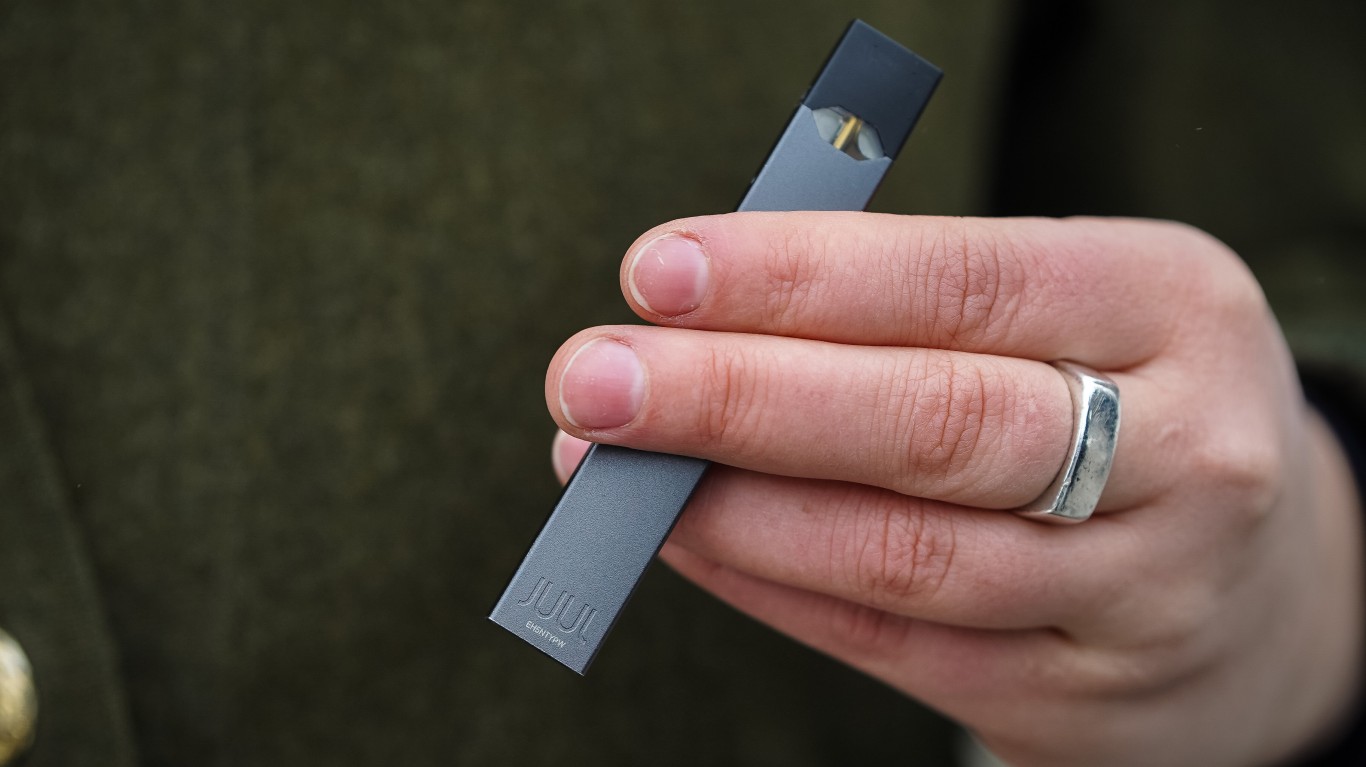
1. Juul Labs
> 2020 reputation quotient: 51.0
> 2019 reputation quotient: N/A
> Industry: e-cigarettes
> CEO: K.C. Crosthwaite
Juul Labs, the company that makes the popular e-cigarette brand Juul, has been blamed for contributing to the rise in underage nicotine use and addiction. E-cigarette use has more than doubled among high schoolers from 2017 to 2019. The Campaign for Tobacco-Free Kids reported e-cigarettes such as Juuls have high doses of nicotine that can get users addicted. Respondents to the Harris survey said they considered Juul Labs as one of the least ethical recognizable U.S. companies, and they disliked the products from Juul Labs more than that of any major U.S. company.
Methodology:
To determine America’s most and least reputable companies, 24/7 Wall St. reviewed reputation scores of the nation’s 100 most recognizable companies from the 2020 Harris Poll Reputation Quotient (RQ), produced by market research firm Harris Insights and Analytics.
The study consists of two parts: a nominations stage, in which consumers identify the nation’s most visible companies, followed by a ratings stage, in which each company’s reputation is measured on a scale of 0-100. The survey was conducted in late June and early July 2020. A full methodology can be found here.
Additional company information came from SEC filings and other publicly available documents.
Let’s face it: If your money is just sitting in a checking account, you’re losing value every single day. With most checking accounts offering little to no interest, the cash you worked so hard to save is gradually being eroded by inflation.
However, by moving that money into a high-yield savings account, you can put your cash to work, growing steadily with little to no effort on your part. In just a few clicks, you can set up a high-yield savings account and start earning interest immediately.
There are plenty of reputable banks and online platforms that offer competitive rates, and many of them come with zero fees and no minimum balance requirements. Click here to see if you’re earning the best possible rate on your money!
Thank you for reading! Have some feedback for us?
Contact the 24/7 Wall St. editorial team.